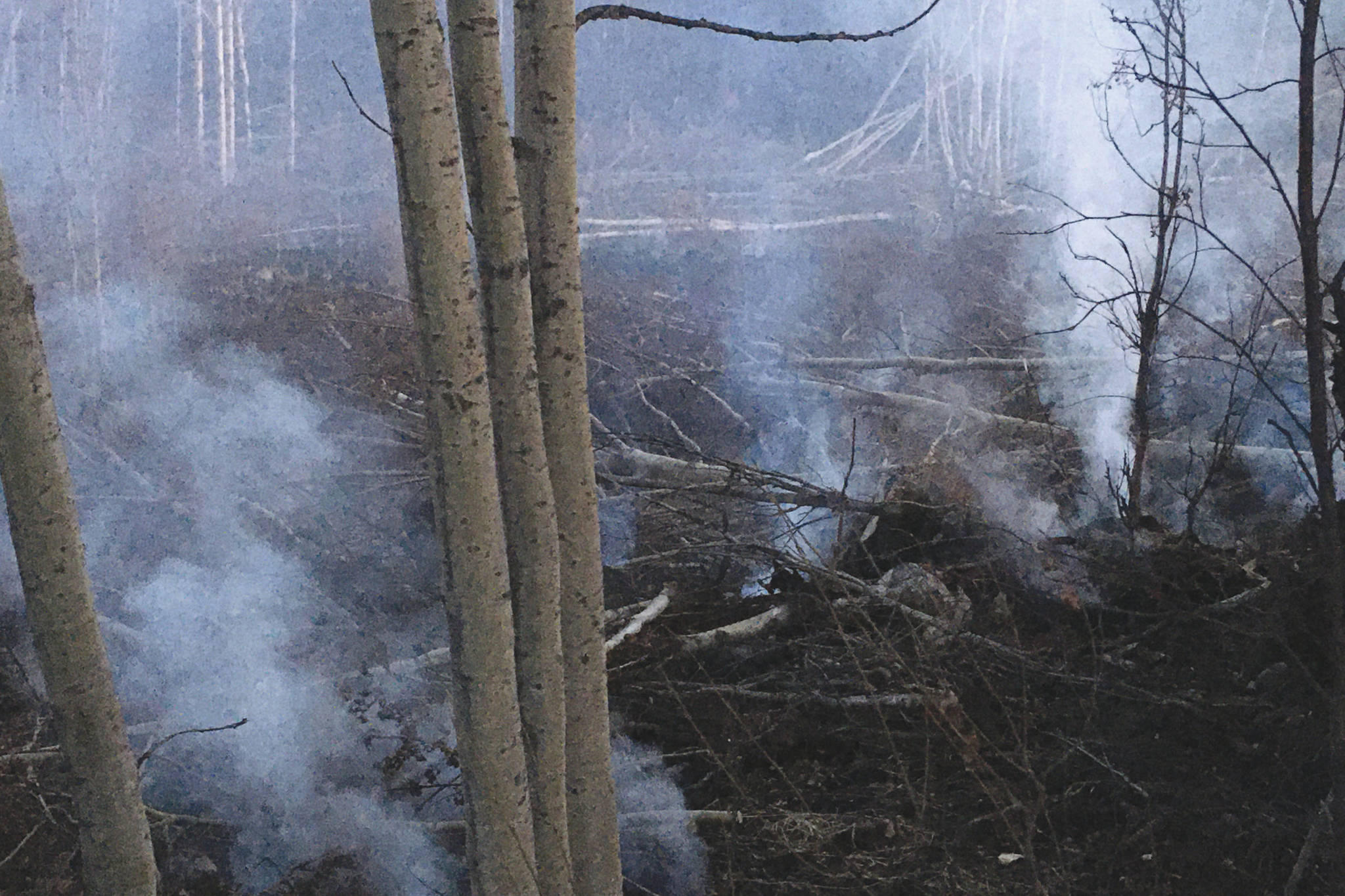Climate change puts boreal forests at risk for “zombie” or holdover fires, which smolder after fire season and flare up the following spring. That’s according to a study published last month in the peer-reviewed journal Nature. The study was led by researchers at Vrije Universiteit Amsterdam in the Netherlands and co-authored by researchers at the University of Alaska Fairbanks and the U.S. Bureau of Land Management’s Alaska Fire Service.
Researchers studied boreal forests in Alaska and Canada, which are categorized by deep and organic soil, which is favorable for smoldering. Those conditions, exacerbated by climate change, may create “unusually favourable conditions for overwintering,” the abstract says.
Generally, researchers found that overwintering or zombie fires in boreal forests are associated with hot summers and deep burning into organic soil, which is becoming more common in recent decades in the geographies studied.
“Our results are based on an algorithm with which we detect overwintering fires in Alaska, USA, and the Northwest Territories, Canada, using field and remote sensing datasets,” the study abstract says. “Between 2002 and 2018, overwintering fires were responsible for 0.8 per cent of the total burned area; however, in one year this amounted to 38 per cent.”
Being able to predict overwintering fires, it says, could reduce carbon emissions and costs to firefighting costs if used by fire management agencies.
According to the study abstract, forest fires are generally viewed in the context of one fire season, however, some fires show “overwintering” behavior, meaning they continue to smolder beyond fire season and flare the next spring.
At least two zombie fires, or holdover fires, have been reported as the result of the 2019 Swan Lake Fire. That fire, which burned for almost four months on both sides of the Sterling Highway, burned more than 167,000 acres.
According to the Alaska Division of Forestry, the first holdover fire from the Swan Lake Fire was reported on June 15, 2020 near Milepost 66.5 of the Sterling Highway. That fire was a 10-by-10-foot hot spot that took firefighters about 10 minutes to extinguish.
The second holdover fire was reported a few weeks later near Milepost 68, in the Kenai National Wildlife Refuge. As of June 26, 2020, firefighters estimated that it was about 7.2 acres and not expected to grow in size. At least 20 firefighters responded to the fire, which rose from the Swan Lake Fire burn scar.
According to a UAF release, overwintering fires are still relatively rare and account for about 1% Alaska and Canada’s total burn area. However, temperatures in the Arctic are expected to increase more quickly than in other parts of the world, with early snowpack melts already being reported in Alaska.
The Alaska Division of Forestry encourages residents to adopt Firewise principles and to adhere to burn permits, which can be accessed on their website.
More information about the study can be found in Nature or on UAF’s website at news.uaf.edu.
Reach reporter Ashlyn O’Hara at ashlyn.ohara@peninsulaclarion.com.

